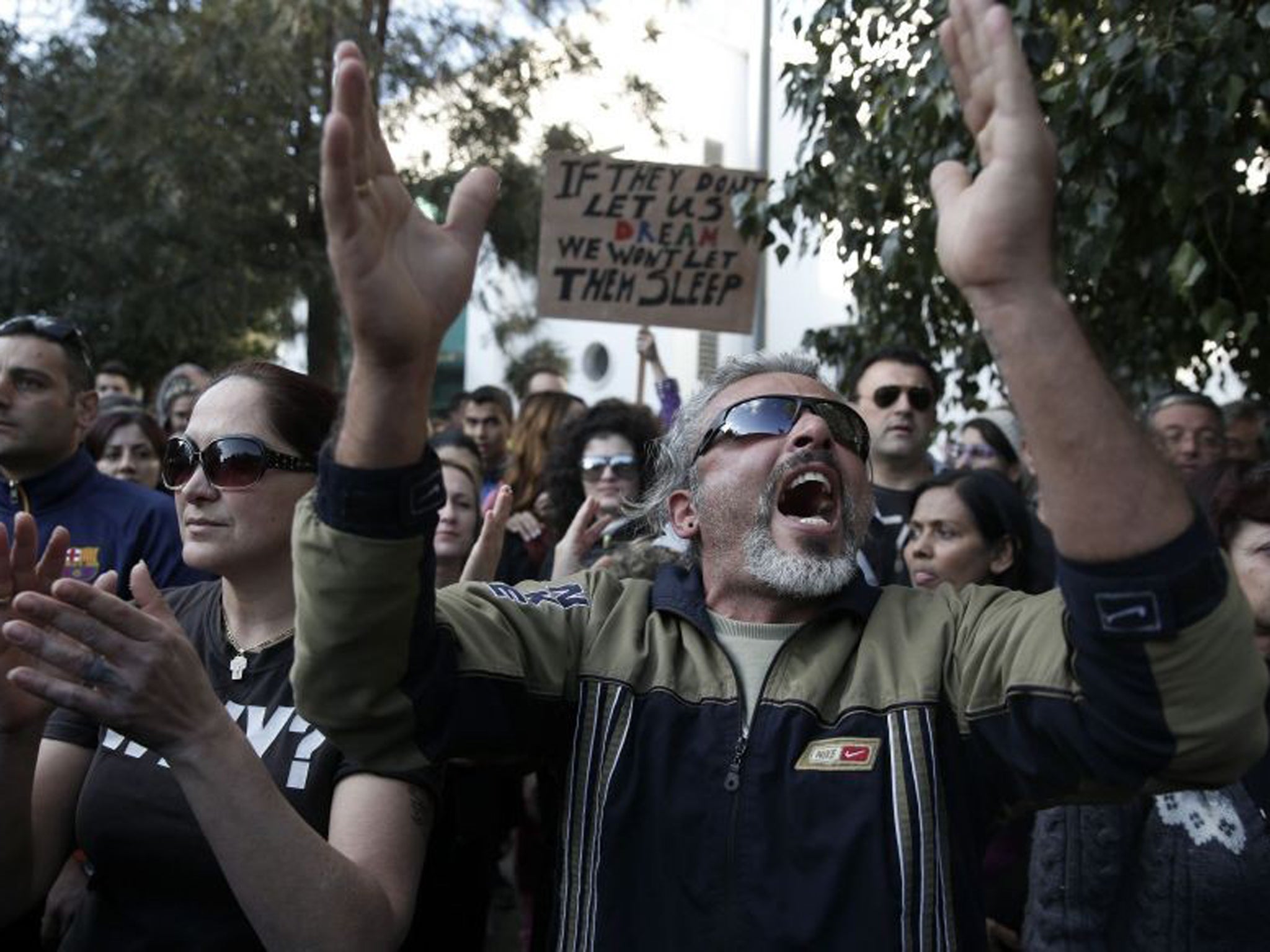Cyprus government proposes change to let small savers escape tax on bank deposits as parliament looks ready to reject bailout package in key vote and risk default
People with less than €20,000 in the bank would not have to forfeit any savings under new proposals

Your support helps us to tell the story
From reproductive rights to climate change to Big Tech, The Independent is on the ground when the story is developing. Whether it's investigating the financials of Elon Musk's pro-Trump PAC or producing our latest documentary, 'The A Word', which shines a light on the American women fighting for reproductive rights, we know how important it is to parse out the facts from the messaging.
At such a critical moment in US history, we need reporters on the ground. Your donation allows us to keep sending journalists to speak to both sides of the story.
The Independent is trusted by Americans across the entire political spectrum. And unlike many other quality news outlets, we choose not to lock Americans out of our reporting and analysis with paywalls. We believe quality journalism should be available to everyone, paid for by those who can afford it.
Your support makes all the difference.The Cypriot government has put forward a new proposal which would allow small savers to escape a tax on their bank accounts, but there remained fears that parliament would later today reject the harsh bailout deal aimed at saving the Mediterranean island from bankruptcy.
Under the new proposals, people with less than €20,000 (£17,000) in the bank would not have to forfeit any of their savings – a change from the the controversial agreement reached in Brussels on Saturday, which stipulated that all deposits would be taxed. Those with between €20,000 and €100,000 would lose 6.75 per cent of their savings, and people with over €100,000 would face a 9.9 per cent tax.
President Nicos Anastasiades was forced to amend the deal reached with the International Monetary Fund (IMF), the European Central Bank (ECB) and eurozone finance ministers after outcry in Cyprus, with people rushing to cash machines to try and get their hands on their money before the measures came into force.
With indications that parliament too would oppose the idea, a vote on the deal has twice been postponed since Sunday. It is now scheduled to begin at 1600 GMT, as the President scrambles to cobble together support for his new plan.
Cyprus' central bank chief conceded, however, that the new proposals did not raise the €5.8bn required by the European Union, and it was unclear how any shortfall would be made up. The troika of the IMF, the ECB and the EU have pledged €10bn in assistance, but only if the Cypriots come up with close to €6bn themselves.
In a statement last night, eurozone finance ministers said they were willing to tweak the deal to lessen the burden on small savers. The total contribution from Cyprus, however, must remain the same. “The statement is quite clear on that point,” an EU spokesperson said.
Even if the troika can be convinced, it remains to be seen if parliament will agree. “The feeling I'm having is that the house is going to reject the bill,” Mr Anastasiades said earlier today. Asked why, he said: “Because they feel and they think that it is unjust and it's against the interests of Cyprus at large.”
Join our commenting forum
Join thought-provoking conversations, follow other Independent readers and see their replies
Comments